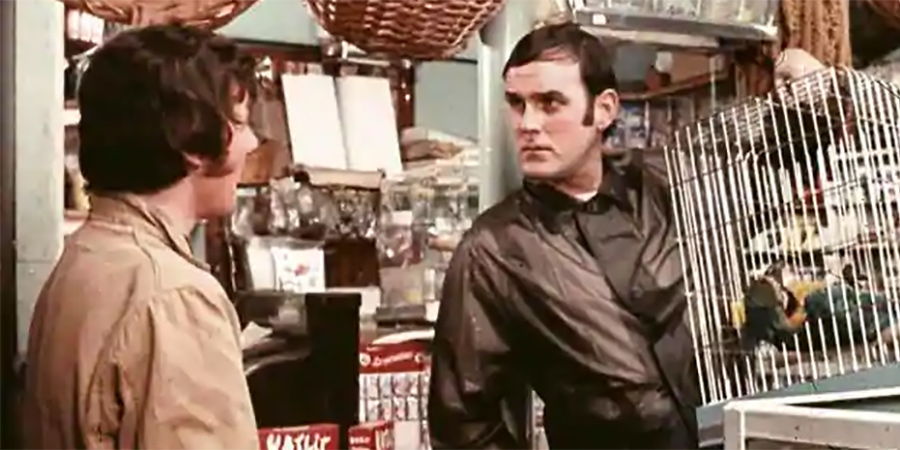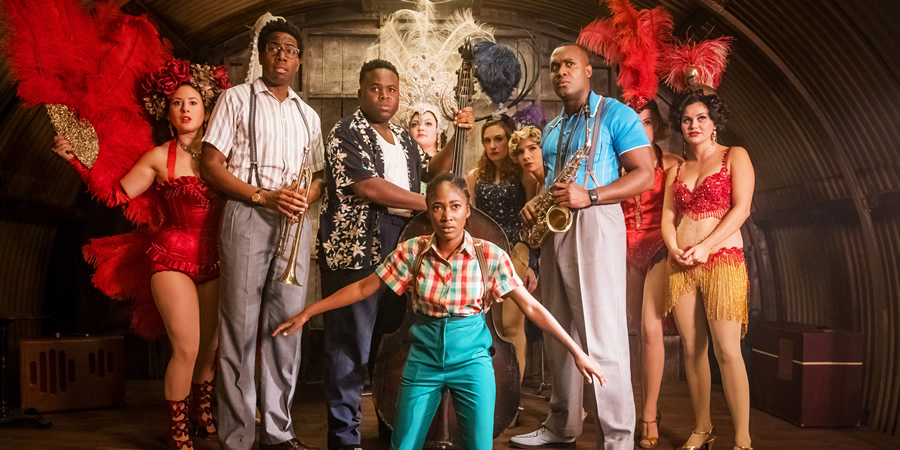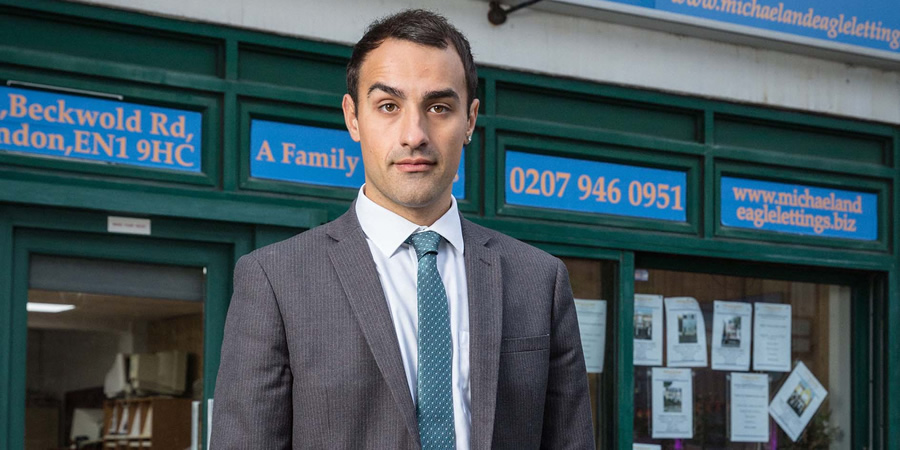Where do you get your comedy ideas from?

"Where do you get your ideas from?". This is one of the first questions writers are asked. Despite the often sneering and stupid answers it receives, it's a very good one.
If you've decided that you want to be a comedy writer, or if you're already some way down the road to becoming one, you're going to need loads of them.
The correct answer to the question is "everywhere."
Let's take a step back and ask the even more obvious question:
What is an idea?
An idea can best be described in cartoon form, which is good news if you want to write comedy. It's that moment when the character looks upwards and a light bulb appears. It's a thought that lives independently of all other thoughts.
Your first job is to develop the mindset that makes you open to having these light bulb moments more frequently.
On its own it doesn't mean anything. You may be staying at a hotel where the manager, whose job is to be polite towards you, is rude and hostile. That's a funny idea for a comedy, you think. But that single idea will not survive in that form.
First, it needs to be hooked onto something familiar. For John Cleese, he recognised aspects of that character he'd been playing his whole life: mid-level authority figures who take charge not through any skills but a sense of entitlement, whose default mode of conversation is sarcasm and whose response to being caught is to lie, lie and lie again.

Michael Palin plays an early version of Fawlty in the most famous of all the Python sketches. It's written by Cleese, who plays the customer who purchased a dead parrot.
An idea may arrive fully formed and ready to write, like the original pitch for Alien - "It's Jaws, set in space" - but most of the time we have to leave each one to stew. Meanwhile keep thinking of more ideas, one of which may eventually bolt onto the first and become a promising development.
How do you get your ideas?
When I say you get ideas from everywhere, I mean it's about approaching everything that you see and do with an open mind. Read, watch TV, remember conversations. Store as much as you can, then write it down and see if it comes to anything.
Newspaper and magazine articles
Did you know that Fast And Furious was based on a relatively obscure magazine article about illegal racers in 1998? 642 movies later, that franchise just keeps rolling.
Short stories and novels
Have a look at the TV schedules, check what's on in your local cinema. Probably around half of all the movies made are based on a book or short story. There's a reason TV companies keep returning to the same old classics, they're great stories that can be retold for each new generation.
To take a recent example, Wandavision grew from the back catalogue of Marvel comics. But it was hugely inspired by The Truman Show, a film that was itself adapted from an episode of The Twilight Zone remakes, which in turn had been heavily influenced by Brave New World by Aldous Huxley.
A painting
Did you know that Wes Craven's movie Scream was inspired by, guess what, The Scream by Edvard Munsch?
Conversation
Before becoming famous as a novelist Chuck Paluhniak returned to his office job after he'd been in a fight on a camping weekend. His workmates were too polite or shy to ask him how he got the black eye. First rule of Fight Club...
A building
Of all the themes and ideas that appear in Remains Of The Day by Kazuo Ishiguro, the one that sticks with me is the old stately home. Everything about that building is symbolic of the story, and Gosforth Park lays this on with a trowel, as does its TV follow-up, Downton Abbey.
There are so many places you can go for your ideas: Your memories, an interesting experience, a fascinating person you once knew, a lecture or class, holidays, a beautiful landscape. I'm sure you can think of more.
What do you do with your ideas?
Simple. Ask questions about them.
What if? What if the Scream painting came to life?
If only? If only animals could talk.
I wonder? What might the world be like if I give up and leave it now? For the answer to that, watch It's A Wonderful Life.
Wouldn't it be interesting if...? We could travel back in time and understand what the world was like in the past?

How do you recognise a good idea?
There are three simple tests that will help you decide if, at this very early stage, this is a good idea:
It grabs your interest
Sometimes, you're walking down the street, minding your own business, and that idea you had yesterday pops back into your head. You start to see it playing out. Again, keep an open mind.
You tell other people and it interests them
You might be surprised at how often new writers say to me "I've got a great idea but I'm not going to tell you it in case you steal it".
This is a common mistake new writers make: they might see a sitcom about a crappy Estate Agents in north London and shout "that's not fair! I had that idea years ago."
Wrong. Jamie Demetriou was a hugely talented writer-performer who created Stath Lets Flats. He had the same light bulb moment that you did but he was in the right place to turn it into a successful show.
I've been reading hundreds of new sitcom scripts as part of the Hat Trick Script Challenge and I've already seen three that are exact copies of pilots I've written over the years that have come to nothing. Don't worry, I won't be accusing you of stealing, though I'll probably be annoyed if you get somewhere with your version.

It's specific
Okay we're still at the early stages, you've had a good idea, maybe you've taken some notes and started to get a sense of where it's going. You want to start imagining what it looks like, where it's set, what is familiar and what are you bringing that's different.
You may be looking again at your estate agents sitcom in which case, have you got something specific to say about it? "You know Stath Let's Flats? Well this is a sitcom set in a similar estate agents, but the big difference is..."
What do you do with your good ideas?
The first thing you need to look for is conflict. I've read a lot of scripts in the last couple of weeks that feature people arguing together in a room. This is not conflict, (yes it is Dave, no it isn't)... it's people arguing. At the end of a conflict there are winners and losers. In comedy the losers have usually spent some part of the episode as winners.
Second you need to think about the character or characters who will best serve you r idea. This is where things start to get difficult, and you have to be careful not to crowbar a character around the idea - but also be aware that if your character idea is strong it might take you somewhere else, beyond your first idea. As always, but particularly at this stage of the process, be open to change.
Third, the more you interrogate your idea, the more clarity it will have.
Sometimes you can get a long way with an idea. I have pages of notes about what I still think is a great idea for a sitcom. Hypocritically I'm not going to tell you it. But I haven't yet been able to make it work. It needs more interrogation.
A quick note about 'why me?'
This is something James and I often talk about in Sitcom Geeks, that the best sitcom ideas are the ones that you and you alone can write. But that doesn't mean if something really unusual happened to you, that you have to stick to the whole story. Don't be afraid to fictionalise it. The actual truth is less important than the emotional truth you bring to an idea.
What happens when they don't work?
Don't expect your first idea to be your best. On the contrary, look at it as the first step to creating a much better idea.
If you can't get an idea to work - and don't be afraid to push it, hard - then drop it. For now.
Hang on to it.
Put it away, preferably in a place you can go back to the next time you're looking for ideas for new scripts to write.
Read a book. Watch a TV show. Look at a painting. Something new will turn up.
You can sign up for Dave's latest Build A Sitcom course
This article is provided for free as part of BCG Pro.
Subscribe now for exclusive features, insight, learning materials, opportunities and other services for comedy creators.




